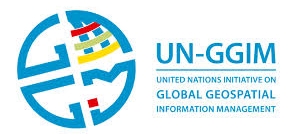News in 2016

|
Fourth High Level Forum on United Nations Global Geospatial Information
Management
20-22 April 2016, Addis Ababa, Ethiopia
The United Nations Committee of Experts on Global Geospatial
Information Management (UN-GGIM), in collaboration with the Government
of Ethiopia and the United Nations Economic Commission for Africa
(UNECA), hosted the Fourth High Level Forum on United Nations Global
Geospatial Information Management at UNECA’s Headquarters in Addis
Ababa, Ethiopia, from 20-22 April 2016. The event was attended by 301
participants from 57 countries; amongst them 8 ministers and 13
delegates. 7 UN Agencies were represented as well as more than 60 NGOs.

Focus of the event
Focus was on land administration and management, with particular
emphasis on sharing experiences, including benefits and challenges,
considering fit for purpose aspects, digital land registers, cadastres,
and other land data needs, demonstrating practical examples of land
administration success stories. Land information and its management are
recognised as fundamental to successful land administration and the
derived benefits to the economies, and overall sustainable development
of nations. Therefore, the overarching theme of the Fourth High Level
Forum was ‘Good Land Governance for the 2030 Agenda’.
Expert Group meeting on Land Administration and Management
The 1st Expert Group meeting on Land Administration and Management
was held as one of the side events. The group of Experts needs to
identify the actions that are possible and within its ambit, to support,
change, and or solve lingering land administration and management issues
particularly as they relate to geospatial information management. The
group is chaired by Kees de Zeeuw from The Netherlands and Mahashe Chaka
from Lesotho. The context of the Working Group and the Terms of
reference were presented. Comments of member contributions have been
taken account for in this ToR. The ToR will be presented to the
committee of Experts in August 2016. Denise Mckenzie of the Open
Geospatial Consortium presented the initiative for a Domain Working
group on Land Administration by OGC. The Chair and Co-chair will prepare
an first draft of an Action Plan by the End of May. After review by the
Working Group members a Draft Action Plan will prepared in June 2016.
This will be submitted to the Committee of Experts in August 2016. The
participants discussed the issues that should be part of an action plan.
The general advice was to narrow down the scope of the action plan, to
be pragmatic and to avoid an approach which is too limited to geospatial
technology.
Opening Remarks
Many aspects of ‘land’ are captured within and underpin the 2030
Agenda for Sustainable Development. Specific areas include: poverty
alleviation; food security; water and sanitation; gender equality;
health lives; sustainable agriculture and production; sustainable cities
and human settlements; forests and ecosystems; and land degradation and
biodiversity loss. The SDGs, targets and indicators related to land at
the global level will be important in order to deliver on better land
governance, tenure and land rights at the national and local level.
Christiaan Lemmen, representing FIG, brought opening remarks on behalf
of the Joint Board of Geospatial Information Societies. He highlighted
that a Fit-For-Purpose approach for Land Administration has been
developed by global stakeholders. This is a gender sensitive,
transparent and highly participatory approach. With the support of
geospatial technologies this approach can be implemented quickly. He
further stated that the is a clear challenge for the global land
community and for the global geospatial information associations: secure
land rights for all people, in all places, at all times. The biggest
challenge is to keep the information on those land rights up to date and
accessible.
The President of the Federal Democratic Republic of Ethiopia, H.E. Dr
Mulatu Teshome gave the official opening statement.
Sessions
After the opening session there was a ministerial segment. And there
was high level policy dialogue. Five sessions with high quality and
attractive contributions from experts from different disciplines. There
was a lot of attention to information and data needs. There are reasons
to be optimistic. Geospatial technology is that advanced today that it
can be implemented at scale for land administration.
Continued satellite missions during the next decade will provide
support the implementation of the SDGs. It can be concluded that imagery
is available, GIS tools and infrastructures are available and also
conceptual standards are available, approaches are available
(Fit-For-Purpose) for all stakeholders. An amazing example of a FFP
approach was provided from Sri Lanka: information about 1 mln parcels to
be collected in 1 year. Another example: Capacity and political
willingness is now the main issue.
Addis Ababa Declaration
The contents of a comprehensive declaration were agreed in the
closing session. A key issue is the support to the development of
Fit-For-Purpose Land Administration and geospatial information,
particularly in developing countries. This information should be
authoritative and consistently available. Land Administration concerns
both formal and informal people to land relationships. Political
awareness has to be advocated and increased. Progress needs to be
measured. Standards need to be used – LADM is recognised here.
Statistical and geospatial data need to be further integrated.
Christiaan Lemmen
April 2016
26 May 2016
























